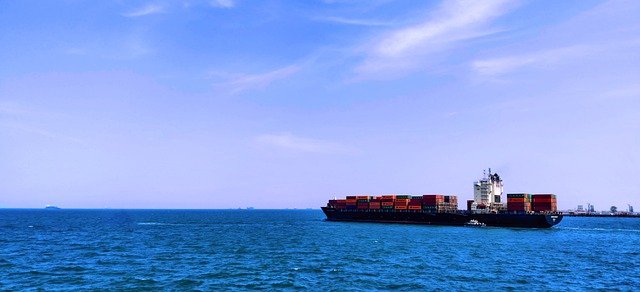
-
The Shippers’ Protection Office has received 55 complaints and inquiries relating to shipping lines more than a year since it was established
-
Three inquiries have been addressed
-
Of the 52 complaints, 14 were resolved/closed, five were referred elsewhere, one is undergoing clarification, three are under evaluation, two are waiting for comments, and 27 were returned for compliance
The Shippers’ Protection Office (SPO) has received 55 complaints and inquiries relating to shipping lines more than a year since its establishment in 2020, according to Philippine Ports Authority (PPA) data.
As of September 2, three of these were inquiries that have been addressed. Of the 52 complaints, 14 were resolved/closed, five were referred to other government agencies, one is undergoing clarificatory conference, three are undergoing evaluation, two are waiting for comments from persons complained of, and 27 were returned for compliance with the prescribed format.
READ: Shippers’ Protection Office created to handle complaints on shipping line charges
The results are consistent with a much earlier presentation by PPA Port Operations and Services Department (POSD) manager Atty. Hiyasmin Delos Santos who said majority of complaints filed at SPO were against foreign shipping lines, while the others were against terminal operators, a domestic shipping line, a freight forwarder, a trucker, a container yard operator, and a bunkering service provider.
Many of the complaints against foreign shipping lines centered on the imposition of container yard charges/return of empty containers; unreturned container deposit/container refund; imposition of demurrage and detention charges; imposition of unreasonable charges; unreasonable practices; and the imposition of storage charges, container imbalance charge, and destination charges.
There were also complaints on the increase in sea/air freight charges, change of port of discharge, and wrong gross weight submitted.
The SPO was created through Department of Transportation (DOTr) Department Order (DO) No. 2020-008 dated June 24 as part of temporary measures to protect people during a state of national calamity “from the impact and effects of exorbitant and unreasonable shipping fees resulting in increased prices for domestic consumers.”
RELATED READ: 45 complaints vs carriers land on Shippers’ Protection Office
The order mandates the SPO to protect domestic and international shippers “against unreasonable fees and charges imposed by domestic and international shipping lines.” The SPO should look into “all complaints and issues related to the rates, charges, practices and operations of international and domestic shipping lines in the country.”
The SPO is headed by the PPA general manager as chair and the administrator of the Maritime Industry Authority as vice chair. The SPO Secretariat is headed by PPA’s POSD.
PPA general manager Jay Daniel Santiago earlier told PortCalls the role of the SPO was to provide a grievance mechanism against unscrupulous practices of shipping companies.
He said the issue of “unregulated shipping charges is a legislative and regulatory issue and is not the reason why complaints have not been resolved.”
He explained further: “The issues can be resolved if the parties agree to resolve it between themselves whether or not there are regulations on shipping charges.”
“It does not have any authority to render any form of judgment for or against any party.”
Santiago said the SPO “would probably remain (in place) until such time that a permanent office or agency is created to provide a grievance machinery for shippers even after the pandemic”.
Under SPO rules of procedures, proceedings should be non-litigious and summary in nature. The SPO should also not be bound by the technical rules of procedure and evidence, but should evaluate and draft recommendations on all complaints and issues as quickly as possible “in accordance with fairness, justice and equity.”
If the complaint is recognized by the SPO, the person complained of will be furnished a copy and instructed to submit a comment or opposition, together with supporting documents, within 10 calendar days from receipt.
Failure to file the required comment/opposition within the prescribed period will be considered a waiver, and the complaint will be deemed submitted for disposition and recommendations, unless a clarificatory conference is deemed by the SPO to be necessary.
A clarificatory conference is a meeting called between the complainant and the party complained of before the complaints officer of SPO. Its objective is to clarify facts and issues, willingness to enter into a compromise agreement, or other matters as may aid the prompt and just resolution of the case.
All complaints brought to the SPO may be the subject of compromise, except violations against the law.
Port users and stakeholders have long asked the government to oversee the operations and charges of international shipping lines. Currently, no government agency has direct jurisdiction over these carriers, although the liners’ agents/local offices are required to register with the Maritime Industry Authority and to comply with Customs and tax rules.
In 2019, there were attempts to regulate local shipping charges through a joint administrative order, which was then replaced with a plan for an executive order that has not materialized yet.
READ: Private sector groups back bills curbing shipping charges
There are currently bills at the House of Representatives pushing for the swift passage of a measure to regulate foreign shipping lines’ charges. The Department of Trade and Industry has also submitted a bill for the proposed Philippine Shippers’ Act and an oversight committee to be called the Philippine Shippers’ Board, which will be a policy-making body that will act on all issues and concerns on international shipping and transport logistics. – Roumina Pablo




